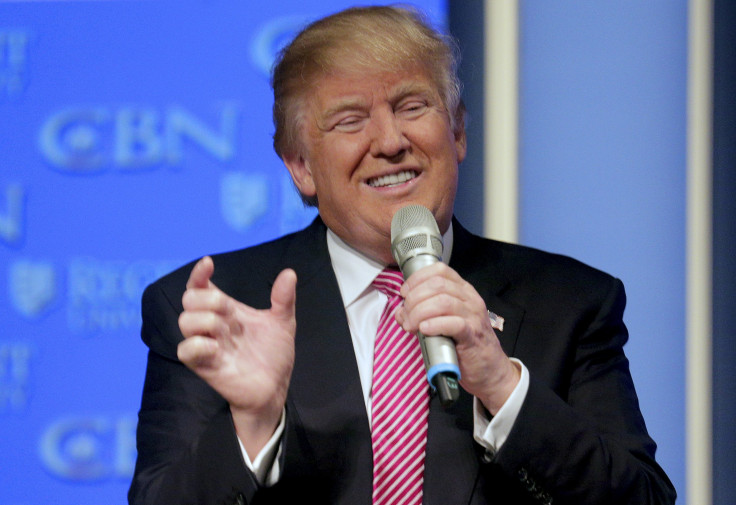Donald Trump Is Poorly Educated About Hispanic Support For His Campaign, New Poll Shows

U.S. Republican presidential candidate Donald Trump engaged in a bit of wishful thinking when he recently described swelling support among Hispanic voters after his victory in the Nevada caucus. According to a Washington Post-Univision News poll released Thursday, Trump doesn’t even come close the winning a majority of Hispanic voters’ support in 2016.
It’s largely because his harsh rhetoric on immigration and racially charged, incendiary remarks about Mexican immigrants have earned him the highest negative rating among Hispanic voters, the poll found. Trump actually does the worst among Hispanics when compared to the remaining GOP field, which includes Texas Sen. Ted Cruz and Florida Sen. Marco Rubio, two Cuban-American presidential candidates who receive mixed reviews from Hispanic voters.
Poll: 8 in 10 Hispanic voters have unfavorable view of Trump https://t.co/6e5itymNTu
— Washington Post (@washingtonpost) February 25, 2016
Hispanics appear to prefer the Democratic Party over the Republican Party overall. Democratic front-runner Hillary Clinton was poised to beat Vermont Sen. Bernie Sanders in a round of primaries and caucuses on Super Tuesday next week.
Trump, a New Yorker who became a billionaire through his real estate and TV entertainment ventures, received an unfavorable rating from 8 in 10 Hispanic voters in the U.S., according to the Post-Univision poll. A Univision survey taken when Trump announced his candidacy last summer also found 7 in 10 Hispanic voters had negative or “very unfavorable” impression of him.
So, if Trump becomes the Republican Party’s nominee, his current standing among Hispanic voters could jeopardize the GOP’s hopes of reclaiming the White House in November. A current matchup between Clinton and Trump shows the billionaire businessman scoring worse among Hispanics than leading GOP contenders Rubio, Cruz and Ohio Gov. John Kasich.
The Post-Univision poll was conducted Feb. 11-18, 2016, among a random national sample of 1,200 Hispanic registered voters, the Post reported. The results have a margin of error of +/- 3 percentage points.
© Copyright IBTimes 2025. All rights reserved.






















